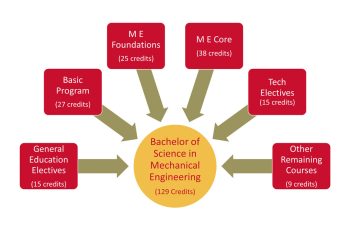Introduction
Building a new home or structure is an exciting endeavor, but it’s crucial to understand the costs involved. One major expense is the foundation, specifically the foundation slab. This comprehensive guide will break down the various factors influencing the cost of your foundation slab, helping you budget effectively. 
Factors Affecting Foundation Slab Cost
Several factors play a significant role in determining the final price. These include the size of the slab, the type of soil, the location of your project, and the materials used. For example, a larger home will naturally require a larger and more expensive slab than a smaller one. Understanding soil conditions is also paramount.
Size and Dimensions
The size of your foundation slab is directly proportional to its cost. A larger footprint means more concrete, labor, and materials, leading to a higher overall price. Accurate measurements are essential for an accurate estimate. [IMAGE_2_HERE]
Soil Conditions and Site Preparation
Soil type significantly impacts the foundation’s cost. Problematic soil, such as expansive clay, may require additional excavation, reinforcing, or specialized techniques, driving up the expense. Site preparation, including grading and leveling, also contributes to the total cost.
Soil Conditions and Site Preparation
Unexpected soil conditions can increase costs significantly. For example, rocky soil might necessitate extra excavation and potentially the use of specialized equipment, leading to increased labor expenses. This is why consulting a geotechnical engineer is essential for accurate cost estimation. [IMAGE_3_HERE]
Concrete Type and Quality
The type of concrete you choose directly influences the cost. Higher-strength concrete might be necessary in certain situations, such as areas prone to earthquakes or those with unstable soil conditions. Choosing a high-quality concrete mix enhances durability but adds to the overall price. Learn more about concrete types and their properties.
Labor Costs
Labor costs constitute a substantial portion of the total expense. The complexity of the project, local labor rates, and the contractor’s experience all influence this cost. Engaging experienced professionals usually ensures quality work, though it may slightly increase the initial investment. It’s recommended to get multiple quotes from different contractors.
Additional Features and Considerations
Additional features like under-slab insulation, vapor barriers, or integrated radiant heating systems will add to the foundation’s cost. These additions, while increasing the initial expense, offer significant long-term benefits in terms of energy efficiency and comfort.
Permits and Inspections
Securing the necessary permits and undergoing inspections is a crucial yet often overlooked aspect. The cost of permits varies depending on your location and the project’s complexity. Make sure to factor in these expenses for a truly accurate budget. [IMAGE_4_HERE]
Conclusion
The cost of a foundation slab is influenced by several interconnected factors. Careful planning, thorough research, and engaging qualified professionals are crucial for a successful and cost-effective project. By understanding the factors discussed above, you can make informed decisions and create a realistic budget for your construction project. Remember to always get multiple quotes before settling on a contractor.
Frequently Asked Questions
What is the average cost of a foundation slab? The average cost varies greatly based on location, size, and complexity, ranging from a few thousand to tens of thousands of dollars. It’s best to get a customized quote from a local contractor.
Can I save money by doing some of the work myself? While you may be able to save on labor costs by doing some tasks yourself, it’s generally not recommended for complex projects like foundation work. Incorrect execution can lead to structural issues.
How long does it typically take to pour a foundation slab? The pouring process itself might take just a day, but the total time involved, including preparation, excavation, and curing, could span several days or even weeks depending on the project scale and weather conditions.
What factors influence the thickness of a foundation slab? The required thickness is determined by factors such as soil conditions, the weight of the structure above, and local building codes. A structural engineer will determine the necessary thickness for your specific project.
What are some ways to reduce the overall cost of my foundation slab? Consider using readily available local materials, optimizing the slab design to minimize its size, and exploring alternative foundation solutions if appropriate. You could also explore using a less expensive type of concrete, but always check with a structural engineer.

